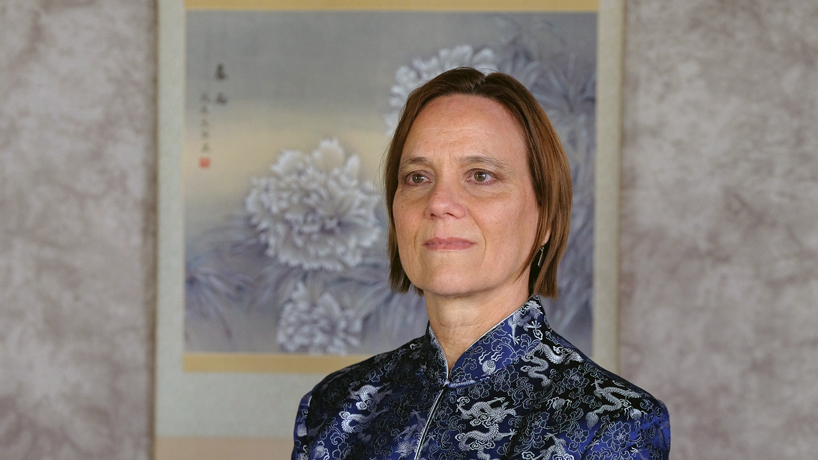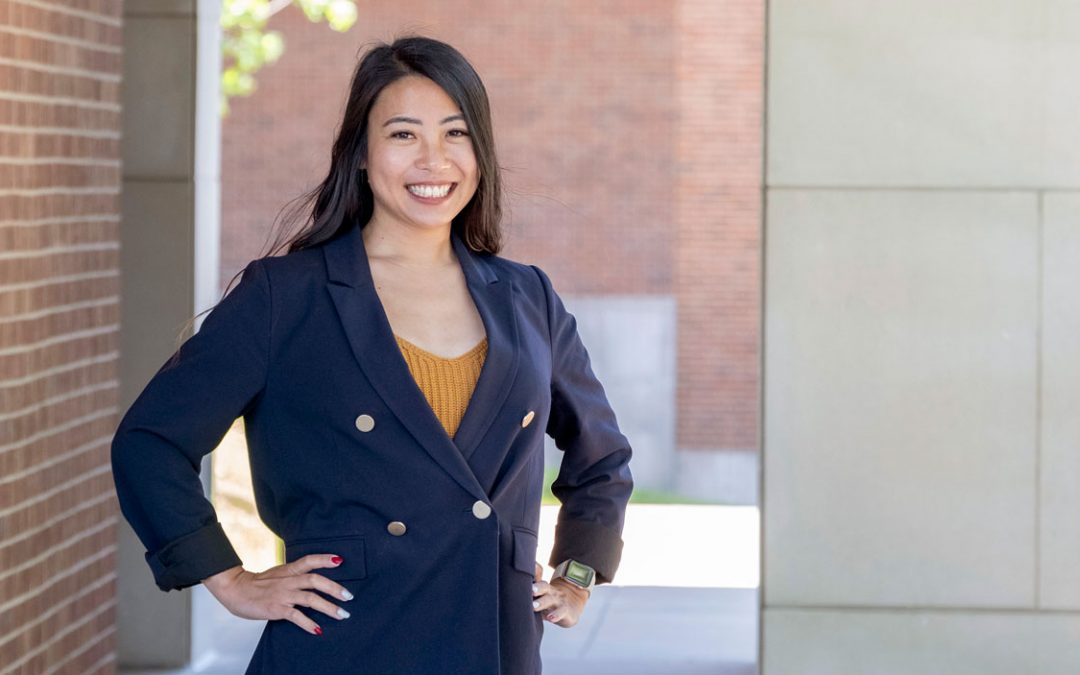
UMSL anthropologist Susan Brownell appeared on Radio New Zealand and spoke to the Financial Times about China’s success in the Tokyo Olympics. (Photo by August Jennewein)
Susan Brownell’s inbox dings a little more frequently around each Olympics with new messages from journalists around the world seeking her perspective about the Games.
Brownell, a professor of anthropology at the University of Missouri–St. Louis, competed in both the 1980 and 1984 Olympic trials as a track and field athlete before transitioning to an academic career in which sport and its place in society have been a central focus.
She has attended five Olympics in person, the first in Los Angeles in 1984, and also served as editor of the book “The 1904 Anthropology Days and Olympic Games: Race, Sport and American Imperialism” and authored “Beijing’s Games: What the Olympics Mean to China.”
Brownell has unique insight on China’s Olympic involvement after studying Chinese language and joining the track team at Beijing University in 1985-86, competing and setting a national record in the heptathlon in the 1986 Chinese National College Games. She returned to Beijing Sport University for a year of dissertation research in 1987-88.
Radio New Zealand had Brownell on as a guest on its “Morning Report” program last Thursday to talk about China’s success during the Tokyo Games. China entered the final weekend of the Games in contention to finish with the most gold medals, though the United States ultimately won out 39-38.
“China is making a really good showing at this particular Olympic Games,” Brownell told host Corin Dann. “In the U.S., we have always counted the total medal count, and we are winning that at the moment, and China counts as the gold medal count. And there’s a bit of contention between the two countries about who’s actually winning at the moment. I think the Chinese think we’re poor sports because we’re behind.”
Brownell and Dann also talked about emphasis China place on Olympic sports and the structure of its system.
“The Chinese sport system really is oriented or has been oriented toward foreign diplomacy ever since it was set up in the 1950s,” Brownell said. “It was a completely state-supported system in which children were recruited at a young age, and then they would be moved into state-supported boarding schools. That’s actually changed a lot now. The whole system is not totally state supported. There are private academies, there are professional leagues, and maybe that diversification is actually what’s enabling them to do a little better now than they have done at the previous two Olympic Games.”
The Chinese finished third in the overall medal count and had 20 fewer gold medals than the United States at the 2016 Olympics in Rio de Janeiro and wound up with eight fewer gold medals than the Americans at the 2012 Games in London.
To listen to the complete Brownell’s complete interview on Radio New Zealand, click here.
Brownell also spoke to the Financial Times about the political tinge to China’s Olympic success in Tokyo.
“Susan Brownell, an expert on Chinese sport at the University of Missouri-St Louis, said the political undertones of the Games were unavoidable given the convergence of China’s reputational damage from the pandemic and its historic rivalry with Japan,” the Financial Times reported.
Brownell also talked to the London-based newspaper about the balancing act Chinese officials have faced domestically after years of criticism for their single-minded focus on winning Olympic medals while doing little to support physical activity for its citizens.
“They have to be careful about anger at losses and nationalism, but there is also a problem if there is too much attention on winning medals,” Brownell told the Financial Times.
To read the full story, click here.














